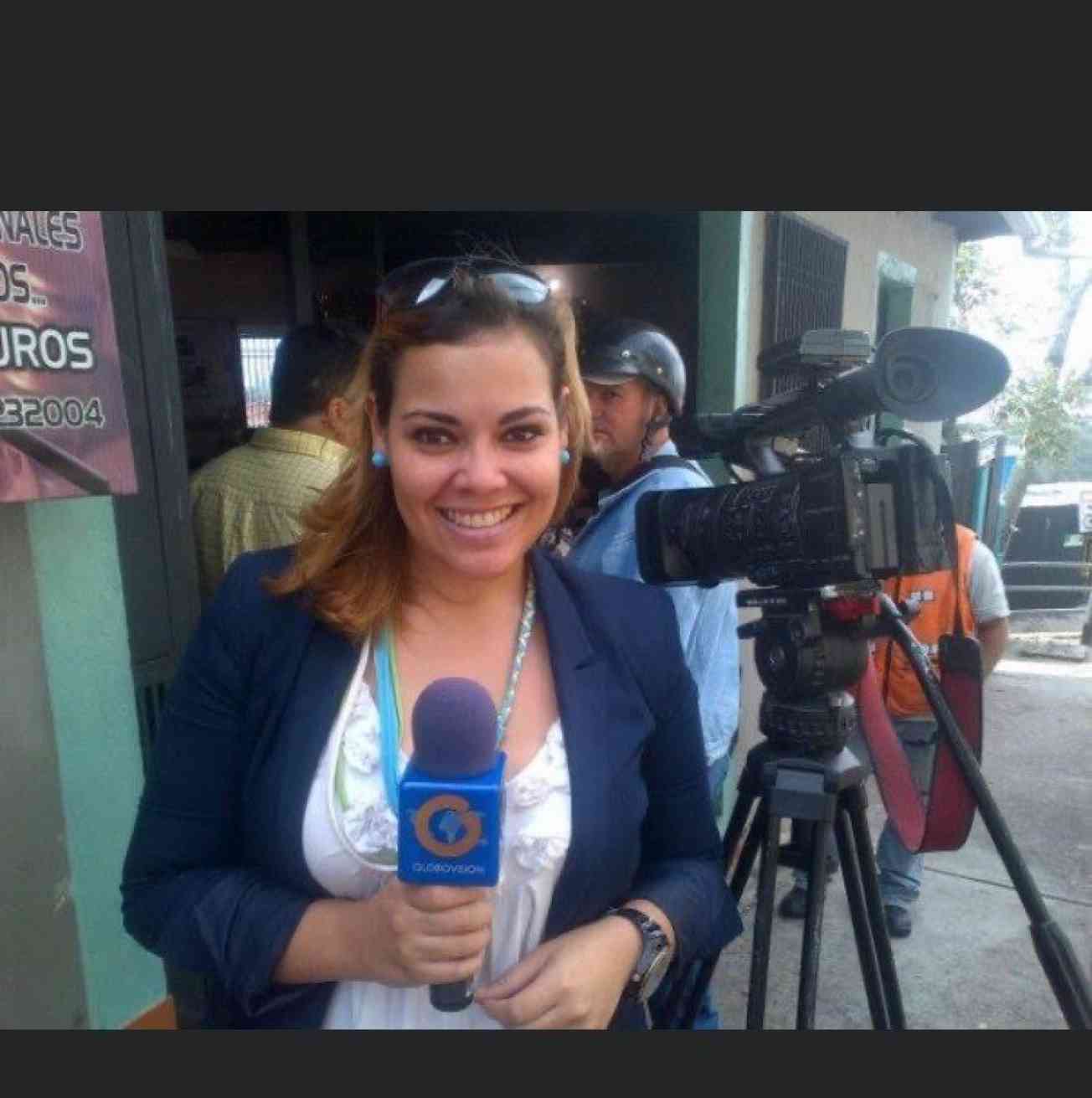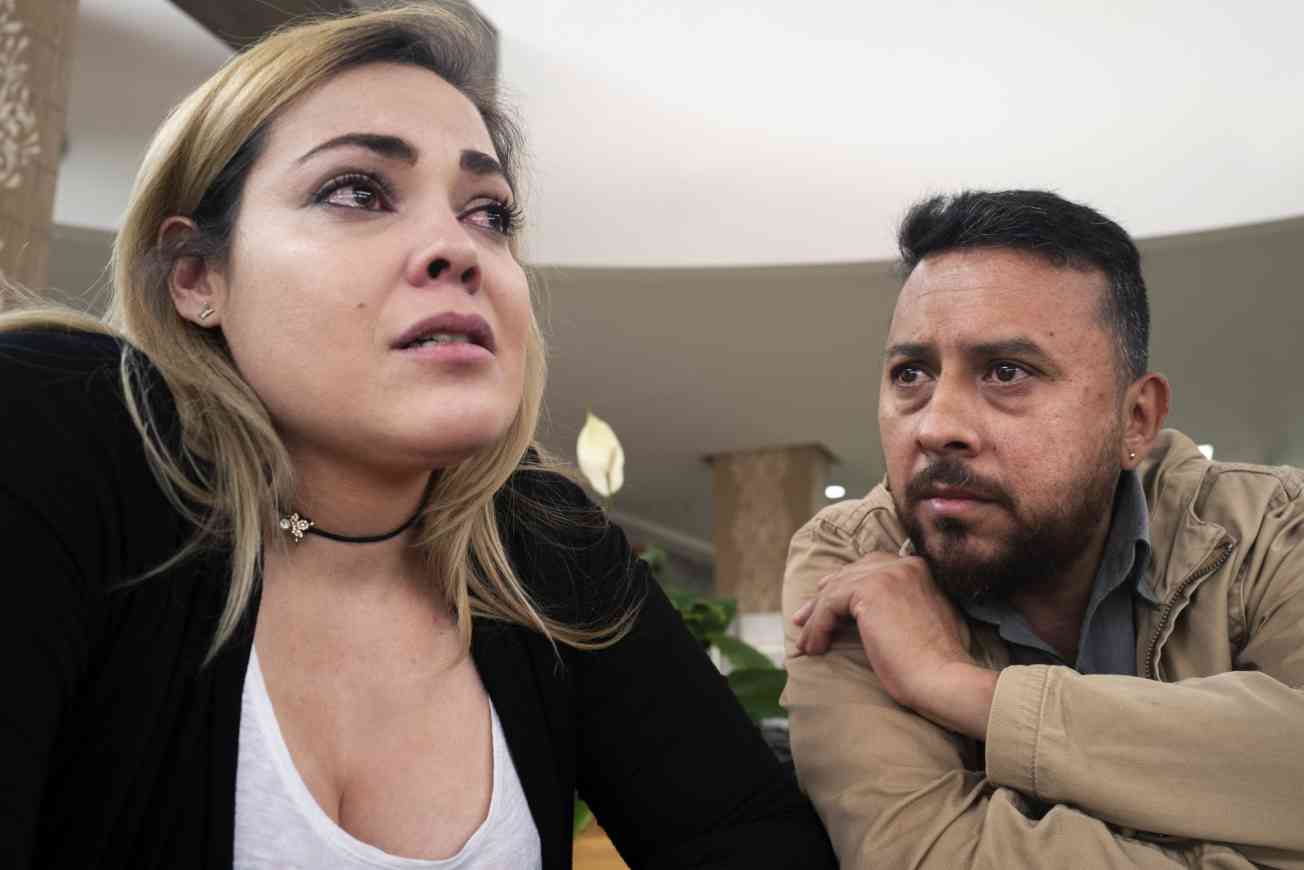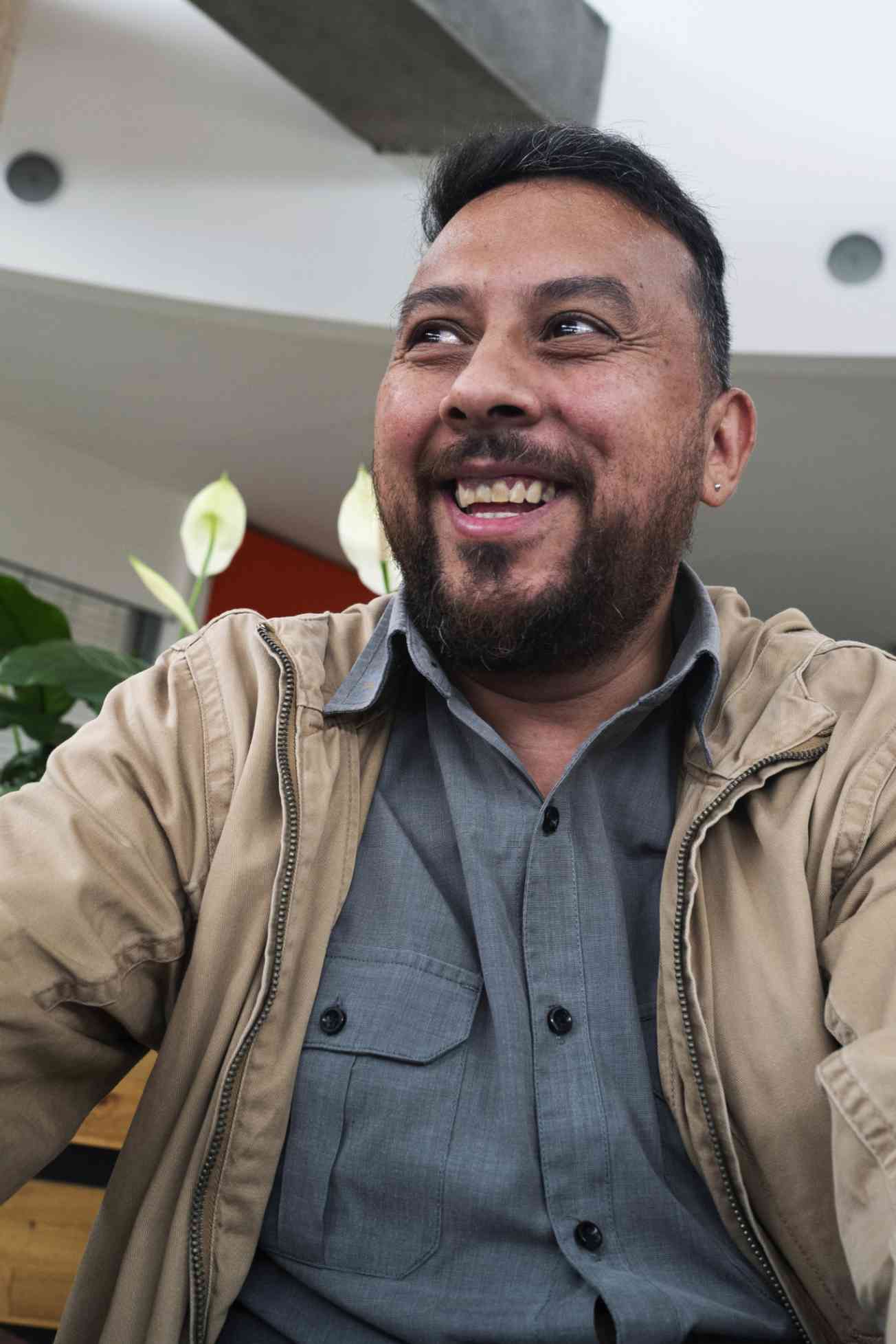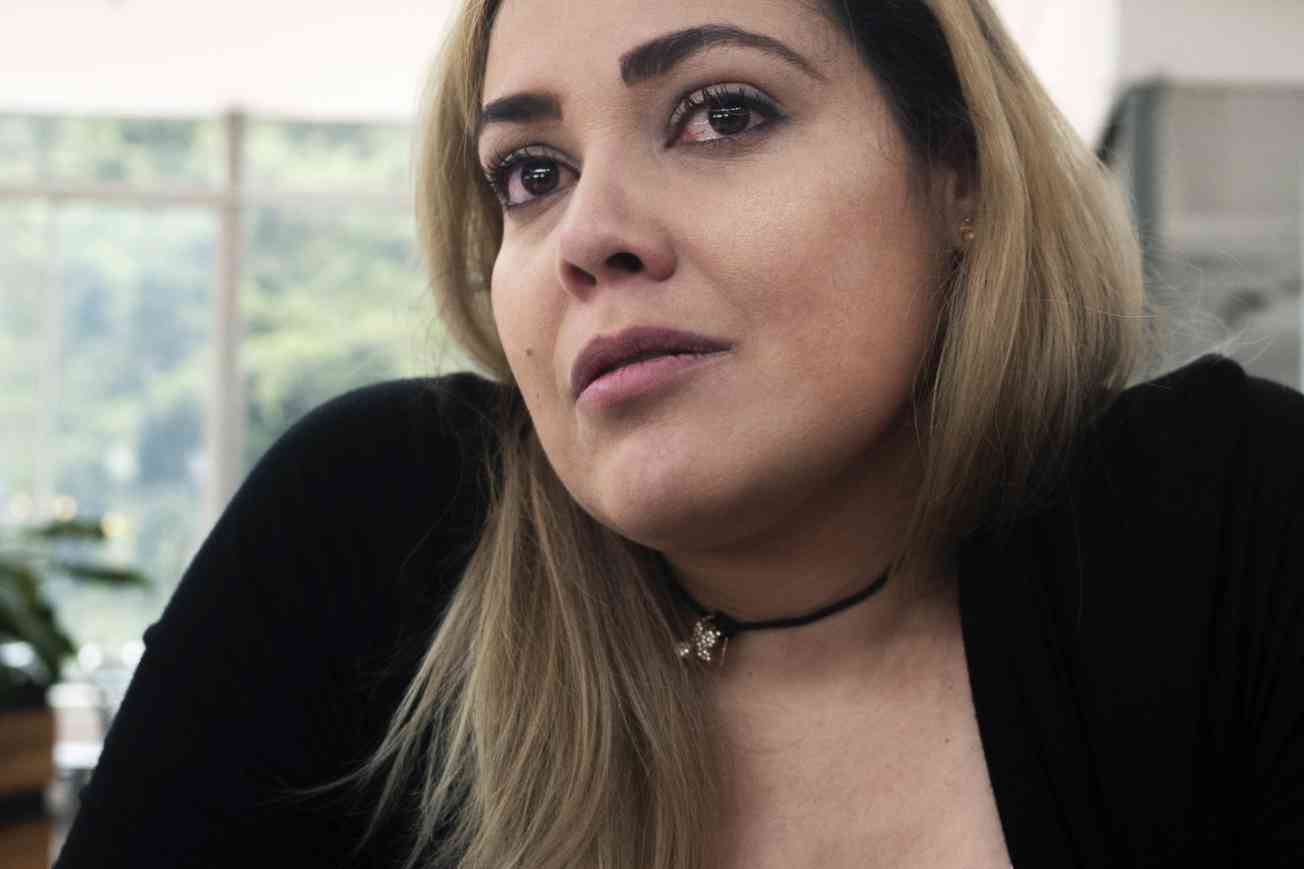Outside the Land that Gave Us Everything
Nowadays, the journalist is persecuted and intimidated, and tortured for showing reality in a photo or image.

Jhennyfer:
I met my husband Carlos Pérez, working for the institutional media in Venezuela.
Every time I covered an event, it was a moment of glory regardless of the difficulty because I felt that it was more than a responsibility. I always carried these words with me: You are part of the new history in the press, this is the beginning of my entire career.
I was finishing up an assignment in Social Communication and was doing an internship in photography at the regional information office of the government of the state of Táchira. We worked together for 3 years. Then, in 2012, we decided to start a relationship. Those were the best 6 years of my life even though I was beginning to experience the risks of being a journalist.
I loved being the guarantor of information in my country during such tense and difficult times.
I started as a street reporter and, due to life circumstances around 6 months, after I started as a street reporter, the head of information resigned. They offered me a position at Noticiero Channel 21 TV. I accepted and decided to continue taking on experiences where I covered pro-government and opposition marches. With time, I was offered an opportunity with a national channel, ANTV,-- a channel that belonged to the ruling party -- supporters of the Chávez government.
From then on, my material was controlled and on many occasions censored. I had to manipulate the notes so that my managers were happy. I had to broadcast a live news story where the entire script was changed to insults to the opposition sector.

After working for a short time with them I decided to resign. I then had the opportunity to join the Televisora Regional del Táchira (TRT) channel as a reporter, who had the largest audience in the state of Táchira.
For Carlos, photojournalism is something that he still carries in his veins.

Carlos:
I lived through the good times of photojournalism and the last days of the Venezuelan press with an actual government. I love my profession, taking photos and getting the news across through photographs. It is fulfilling.
Belonging to the media during the 80s and 90s was a luxury, a status that not just anyone could have at that time. For me, this was the best period of journalism in Venezuela and I am proud to have lived it.
I never thought that in my country, there would be a scene of repression and censorship. Before, freedom of expression was the main bastion. Nowadays, the journalist is persecuted and intimidated, and tortured for showing reality in a photo or image.
Eventually, I stopped working at the Diario los Andes. I began to work for a government entity as a photographer for the governor on duty in the State of Táchira. It was there that I met Jhennyfer. I continued to dedicate myself to social photography and modeling and I had my own studio and was recognized in the state for my work. I was in my comfort zone.

But, as time passed, insecurity became part of society. Money couldn’t cover expenses and personal hygiene supplies couldn’t be found on the supermarket shelves. Anxiety ate you every day. Going out to the streets to protest was looking for death.
We made the decision to leave the country. No matter how hard we tried to survive in Venezuela, it was very difficult. Venezuela had been a country of many opportunities where an individual was helped in an open-handed way; we never thought we would have to leave from the land that gave us everything.
We wanted to go to a country where it would not be difficult to travel and the money we had saved would be sufficient. With only 300 dollars (200 thousand pesos), we headed for Colombia. My father was Colombian and so we had the possibility of obtaining documents.
The trip to Colombia was planned on Jhennyfer’s birthday. We crossed the border [into Colombia] a few months later, leaving everything we built on the other side - all our lived moments only retained in memories.
We undertook this trip without knowing anyone on the other side. We only had an acquaintance of mine, who I managed to contact upon arriving in Bogotá. He hosted us for a few days while we searched for a place to live and jobs. Every day we would get up early, handing out resumes. We got up at 7 am and returned home at 6 pm. We only ate a banana so we could stretch the money and try to rent a room. In a week, we managed to get a room in a bar. It was our first home here in Colombia. It was a bit uncomfortable because, through an acquaintance, we managed to get jobs as extras in movies and soap operas; we were up at 4 am and we would get home at 9 at night. Very tired, we would find ourselves with loud music and the shouts of drunks. We really could not rest but at least we had somewhere to sleep.
Colombia was very welcoming to us and the owner of the room was very happy with our arrival. That same week she helped us get clothes and a bed. We could not complain, and we have always been able to count on the blessing of very good people.

Jhennyfer:
At that time the Netflix series about Chavez was being filmed. For that series, we were able to work as extras. I felt grateful because I was doing something related to what I was doing in Venezuela. I will never forget that series. We performed background roles, in my case as a journalist and my husband as a photographer. But as time went by, these jobs became scarcer. More Venezuelans arrived and these jobs were restricted to only co-nationals or Colombians.
We were left without jobs, and again we took long walks handing out resumes. We walked for hours but no one contacted us. We decided to make food to sell, so we started selling food from house to house. We started very early to get everything ready so that we could pay for the room. My husband managed to get a job as a kitchen assistant in a restaurant and I went out every morning to sell Venezuelan empanadas. We were doing very well!
But 6 months after arriving in Colombia, I got sick and everything changed.
We joined a Christian church in search of God since we are believers. When they diagnosed me with Lupus, I was surprised. I was always very active and very seldom got sick. I did not understand what the disease consisted of and I was very scared. After being hospitalized for several days, my health and my body changed a lot. I was a different person and began to cling to God. I had to learn to live with this autoimmune disease. It has no cure. I began the job search again, but people rejected me because of my health.
Carlos got a job in a very famous fashion studio in the city of Bogotá. We began to feel more stable. Then I got a job at a well-known swimwear store. Things were looking up - but by April 2019 I was unemployed again, and Carlos lost his job the following month.

Again we were getting nowhere. Until August of that year, when I was called to do a special job for an international media outlet to cover the Colombian elections. We managed to collect 300 dollars. My husband also managed to raise some money with his previous job and we were able to pay the rent of the apartment where we currently live.
After three more months of searching, I got a job at a call center, for customer service with T Mobile, a company in the United States. I took my exams and started working.
After some time, Carlos got a job as a virtual horse betting center operator.
Carlos is still doing photography, recounting the story of Venezuelan expatriates for all media that need it.
We long to continue to improve ourselves. Every time I close my eyes and open them, I thank God for all that we have achieved in this country, and the support he gives us every day.
It has not been easy, but we have remained calm, and we try every day to do things in the best way to be able to achieve everything that we aim for as a couple.
Even so, we do not put aside the dream of continuing to improve our circumstances and returning to our roots, reuniting with family and friends who are still in the country. “Where one day everything will go back to being as before, Venezuela, the country of opportunities!”
Thank you for the opportunities provided by the Colombian people, and for helping the Venezuelan people by opening its doors.
In an effort to keep her journalism career alive, Jhennyfer continues to interview individuals on her YouTube channel and on Instagram. Carlos does the same from his photography Instagram account (may include sensitive content).
Our team members obtain informed consent from each individual before an interview takes place. Individuals dictate where their stories may be shared and what personal information they wish to keep private. In situations where the individual is at risk and/or wishes to remain anonymous, alias names are used and other identifying information is removed from interviews immediately after they are received by TSOS. We have also committed not to use refugee images or stories for fundraising purposes without explicit permission. Our top priority is to protect and honor the wishes of our interview subjects.